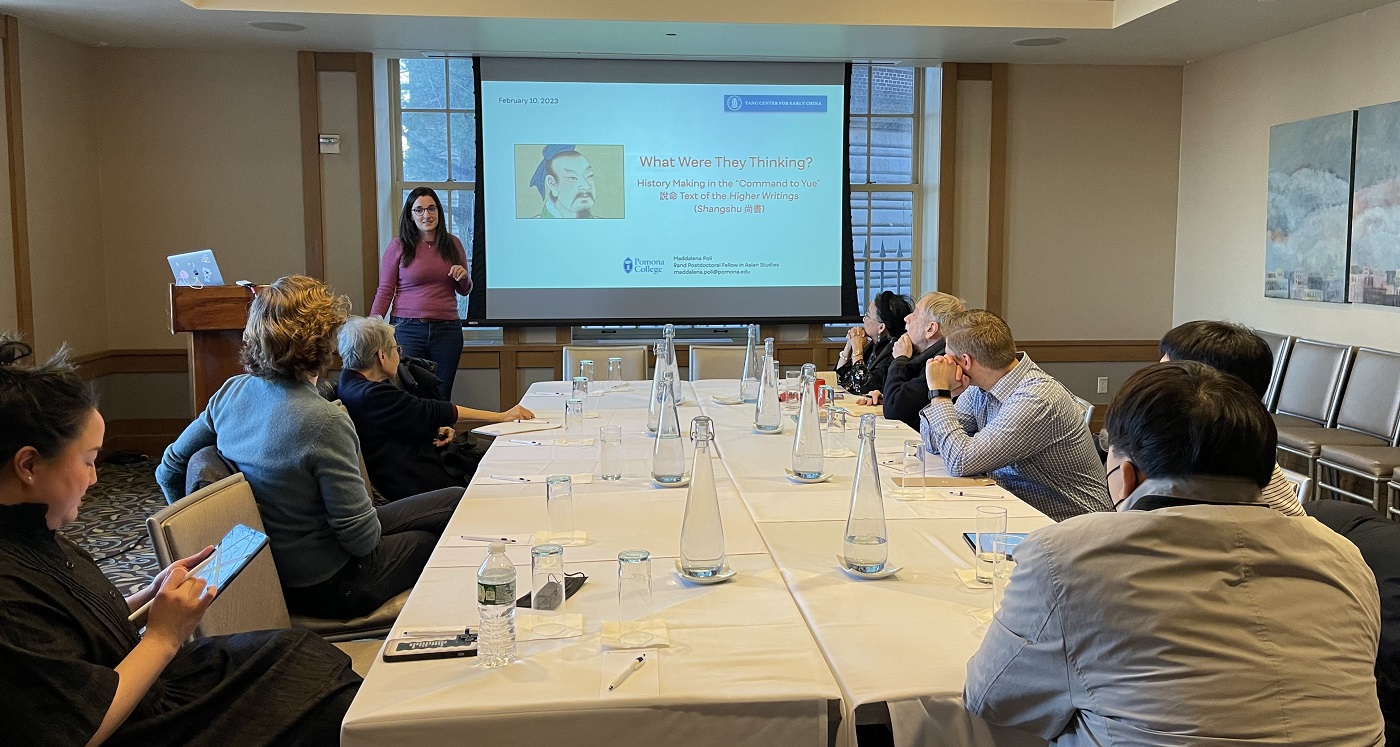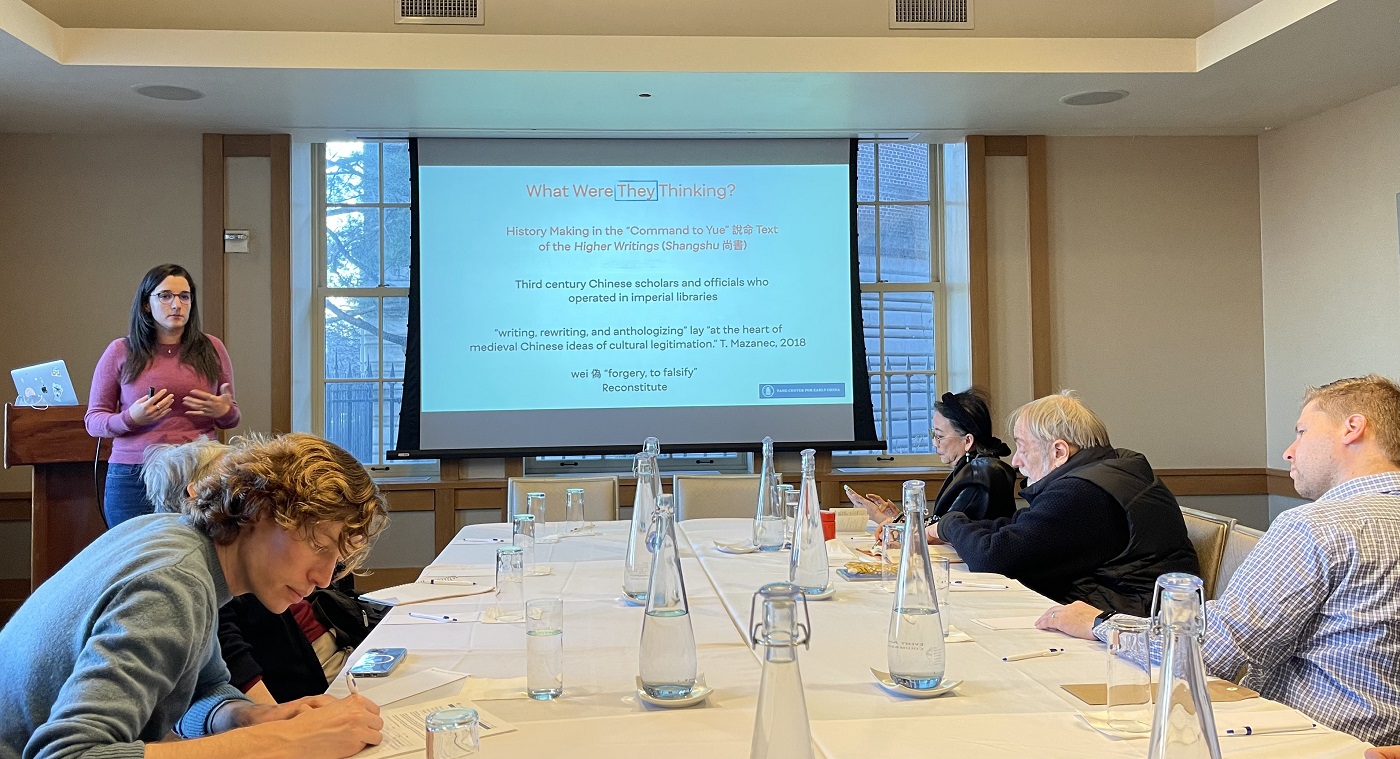February 10, 2023
Early China Seminar Lecture Series
Title: “What Were They Thinking? History Making in the “Command to Yue” 說命 Chapter of the Exalted Writings (Shangshu 尚書)”
Speaker: Maddalena Poli, Pomona College
Time: February 10, 2023 (4:30-6:30 PM EST)
Venue: Faculty House
*Please check the announcement board in the first floor lobby for room information.
**Please see Seminar Safety Guidelines for attendance information.
“Command to Fu Yue” 傅說之命 of the Tsinghua University bamboo manuscript collection is one of many excavated manuscripts challenging assumptions of early China’s intellectual history and manuscript culture. Its story narrates how the laborer Fu Yue became a trusted minister of the legendary king Wu Ding 武丁 (trad. r. 1324–1266 BCE). The narrative was previously known through several transmitted sources, primarily from the “Command to Yue” 說命 chapter of the Exalted Writings (Shangshu 尚書). The “Command to Yue” is in fact a 4th century CE creation pretending to be much more ancient; it was reconstituted based on earlier material and new additions. What were the methods used by the forger, traditionally identified as Mei Ze 梅賾, in this creation? Is it possible to understand their motivations? What assumptions is the compiler, be it Mei Ze or someone else, making? This presentation will compare the manuscript “Command to Fu Yue” with the transmitted “Command to Yue” to answer these questions, with particular focus of the ruler-minister relationship. In the manuscript, the portrayal is modeled after early Eastern Zhou writings, where the king gives commands to an assenting minister. Conversely, in the 4th century CE Shangshu chapter, the minister leads the verbal exchange. In other words, the structure of “Command to Yue” suggests that 4th century scholars were uncertain about how to construct the ruler-minister relationships and thus demonstrates the merging of history and imagination. This also points to an interruption of textual transmission of ancient writings, as evidenced by the textual history of the Shangshu. While this presentation is limited to one case study, the conclusions prompt questions for understanding ancient Chinese history more broadly.


